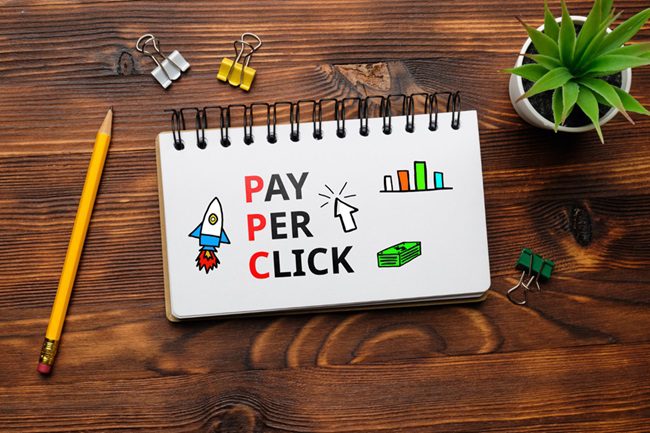Pay-Per-Click (PPC) advertising is one of the most effective methods to boost online visibility and drive targeted traffic to your website. By running PPC campaigns, businesses can strategically reach their ideal audience and achieve measurable results. Whether you’re looking to increase website traffic, generate leads, or drive sales, PPC allows you to tailor your approach for maximum impact.
In this article, we’ll explore actionable strategies to help you create, manage, and optimize PPC campaigns effectively. From understanding the basics of PPC to leveraging advanced tools and integrating efforts with other marketing channels, we’ll cover everything you need to know to enhance your digital advertising success.
If you’re seeking professional support to optimize your campaigns, check out our PPC Advertising Services to get expert assistance tailored to your business needs.
What is Search Engine Advertising and Why Does it Matter?
Search engine advertising, commonly referred to as PPC, connects businesses directly with potential customers through targeted ads on search engine results pages (SERPs). Unlike organic efforts that can take time to show results, PPC campaigns deliver immediate visibility and measurable returns.
Key Benefits of PPC Advertising:
- Targeted Audience Reach: PPC allows precise targeting through keywords, demographics, and geographic filters, ensuring your ads reach the right audience.
- Cost Efficiency: Pay only when a user clicks on your ad. This ensures that your budget goes toward engaging users who are genuinely interested.
- Immediate Results: Unlike SEO, PPC generates traffic quickly, making it ideal for time-sensitive campaigns.
- Data-Driven Insights: PPC platforms like Google Ads provide robust analytics, offering insights into user behavior, conversion rates, and keyword performance.
When implemented effectively, PPC advertising drives not just traffic but also high-quality leads, helping businesses achieve their marketing objectives.
Steps to Create a High-Impact PPC Campaign
Running a successful PPC campaign requires strategic planning and continuous refinement. Here’s a step-by-step approach:
- Comprehensive Keyword Research
Use tools like Google Keyword Planner or SEMrush to identify high-performing keywords with a balance of search volume and competition. Focus on long-tail keywords such as “best tools for PPC optimization” or “how to run effective PPC campaigns” to attract qualified leads. - Crafting Engaging Ad Copy
- Highlight your unique selling points and directly address the audience’s needs.
- Include a clear call-to-action (e.g., “Sign Up Today” or “Learn More”) to encourage clicks.
- Optimizing Landing Pages
- Ensure your landing page aligns with the ad’s intent and provides a seamless user experience.
- Keep forms simple, use compelling headlines, and make your call-to-action visible.
- Setting Measurable Goals
Define clear objectives like increasing conversions, lowering cost-per-click (CPC), or boosting return on ad spend (ROAS). Specific goals will guide campaign optimization efforts. - Ongoing Monitoring and Adjustments
Regularly analyze performance metrics such as click-through rates (CTR) and conversion rates. Use A/B testing to refine elements like headlines, images, or ad copy.
By following these steps, businesses can launch PPC campaigns that not only attract clicks but also convert visitors into customers.
Leveraging Tools and Analytics for Better Campaign Performance
To maximize your PPC campaigns’ potential, it’s essential to utilize the right tools and analytics. These resources help you identify strengths, address weaknesses, and make data-driven decisions:
- Google Analytics & AdWords Integration
Understand user behavior by tracking metrics like bounce rate, session duration, and conversions. This integration helps refine targeting and ad placements. - Keyword Planner Tools
Discover high-performing and relevant keywords. Use these tools to adapt your campaigns to changing trends and user intent. - Monitor Key Metrics
Pay attention to metrics such as:- CTR: Indicates how well your ad resonates with users.
- CPC: Helps manage your budget efficiently.
- Conversion Rate: Measures the effectiveness of your landing page.
- A/B Testing for Optimization
Experiment with variations in ad copy, visuals, and calls-to-action to determine what performs best. For example, test different headlines like “Drive Traffic with PPC Ads” vs. “Boost Sales with Google PPC Campaigns.” - Automation Tools
Tools like Google Ads automation or third-party platforms can optimize bids, adjust budgets, and improve efficiency while freeing up time for strategic planning.
These tools empower businesses to continuously optimize PPC efforts, ensuring higher returns on investment.
Integrating PPC with Your Digital Marketing Strategy
PPC campaigns deliver the best results when integrated with other digital marketing strategies. A cohesive approach ensures consistency in messaging and maximizes overall impact.
- Align with SEO: Use PPC insights, such as high-performing keywords, to inform SEO strategies and improve organic search rankings.
- Promote Content: Drive traffic to valuable resources like blogs, whitepapers, or case studies through targeted PPC ads.
- Retargeting for Conversions: Implement retargeting campaigns to engage users who have visited your site but didn’t convert.
- Cross-Channel Analytics: Evaluate performance across PPC, SEO, email, and social media campaigns to identify strengths and weaknesses.
By integrating PPC efforts into your broader strategy, you ensure a unified approach that amplifies results across all channels.
Conclusion
PPC advertising remains a cornerstone of successful digital marketing. By understanding its benefits, crafting targeted campaigns, leveraging analytics, and aligning efforts with broader strategies, businesses can maximize their online visibility and achieve measurable results.
For tailored PPC solutions that drive results, explore our Search Engine Advertising and PPC Services. With expert guidance and data-driven strategies, you can take your digital marketing to the next level.
Effective PPC management is not just about spending money on ads—it’s about making informed, strategic decisions that deliver long-term value. With the right tools, continuous optimization, and a data-driven approach, your business can thrive in the competitive online landscape.
Frequently Asked Questions
What is the main focus of this page?
The page outlines how PX Media leverages data driven PPC advertising strategies to help businesses improve visibility, attract qualified leads, and achieve measurable growth.
What strategies are used for PPC optimization?
What type of visibility can PPC provide?
How does PX Media generate quality leads?
Can PPC accelerate revenue growth?
What advantage does PPC offer over competitors?
How does PX Media improve PPC over time?
What is included in PX Media’s PPC approach?
What metrics matter in PPC campaigns?
Key metrics include click through rate (CTR), cost per click (CPC), cost per acquisition (CPA), and return on ad spend (ROAS), all used to measure campaign effectiveness.


